Twice a week, a group of mostly African asylum-seekers gathers on a soccer pitch in Hong Kong and trains for its next match against a local side.
The team, All Black FC, is the first of its kind in the former British colony and offers a rare opportunity for refugees from more than 10 mostly African countries to integrate with residents.
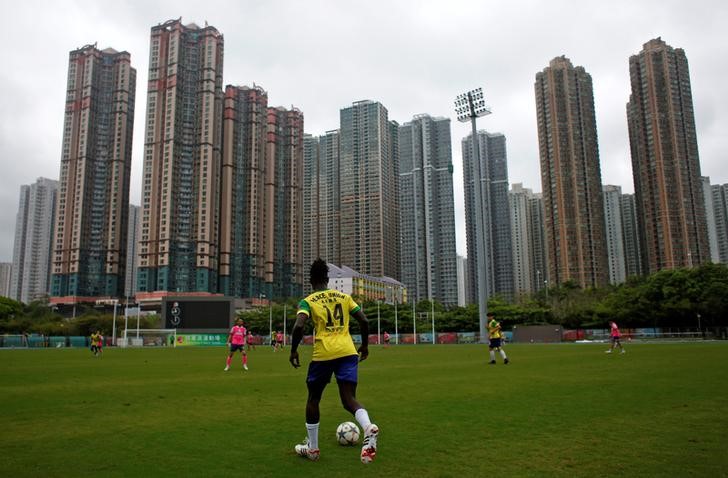
“As I’m playing football, I feel so excited. I feel happy,” said Solomon, 26, as he dribbled between cones and smashed shots at a goalie during a recent training session.
The team was set up a year ago by expatriate Medard Koya, a soccer coach from the Central African Republic.

He noticed his refugee friends struggling to assimilate into Hong Kong society and thought the beautiful game could serve as a common language to help bridge the gap.
“Even if you come from Africa, you come from Europe, you come from Asia, when you go to play football, you know you can just enjoy, run together, jump together, even fall together,” said Koya, kitted out in a yellow All Black FC jersey with the slogan “Hearts of Lions.”
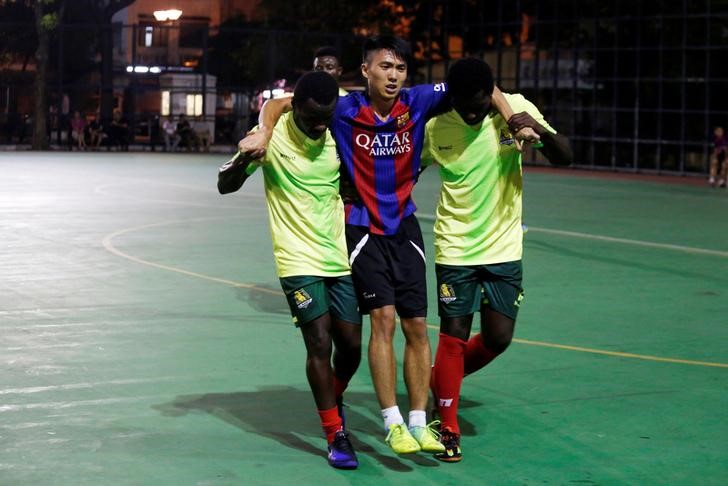
Solomon was on a business trip to Hong Kong three years ago when his father warned him it was too dangerous to return to Gambia in west Africa. Solomon said he overstayed his visa and applied for refuge in Hong Kong.
The young Gambian is among 11,000 asylum seekers in Hong Kong, government data shows. Authorities have approved just 52 of more than 8,000 asylum claims since 2009.
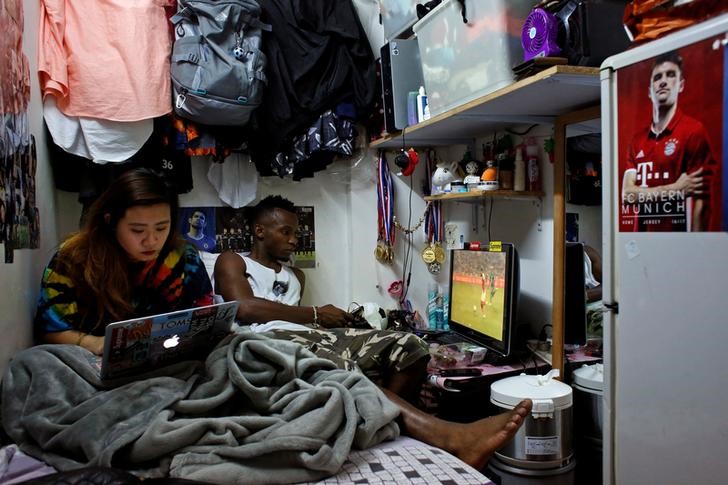
Those granted asylum receive HKD1,200 (USD154) in monthly food coupons and HKD1,500 (USD193) for rent in one of the world’s most expensive cities.
However, Hong Kong makes it difficult for them to settle permanently in the city, said human rights lawyer Robert Tibbo.

“Hong Kong has this history of marginalizing these asylum seekers where they cannot…obtain permanent residency and settle down here, resettle here and be part of the community,” Tibbo told Reuters Television.
Nevertheless, the atmosphere on game day is filled with camaraderie.
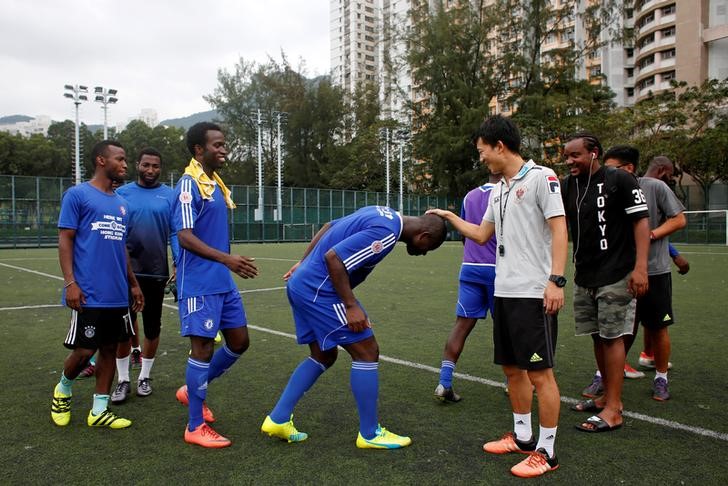
“We don’t mind their work and their personality. We just talk about football,” said Eric Lee, a local player who was carried off by two All Black FC players after being injured.
“It’s like a family through playing football.”

Koya said the team aimed to promote solidarity and provide hope for other asylum seekers facing an uncertain future far from home.
“Before we start this program, most of them do nothing, they have nothing to do,” Koya said.
“But now they feel part of something. This brings them a new hope.”
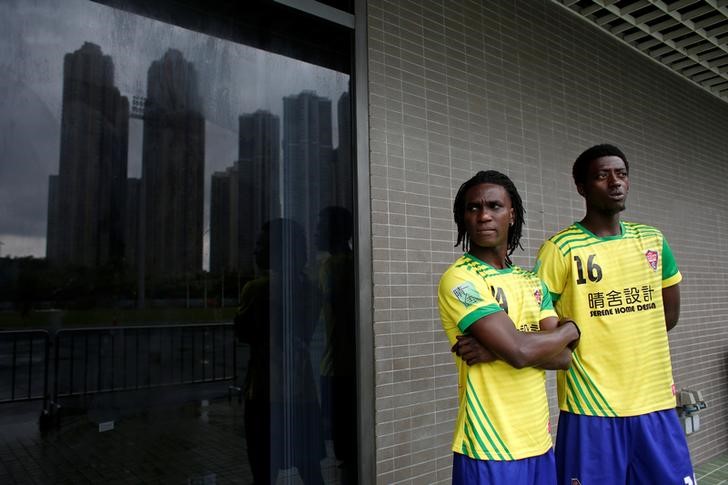




Reader Interactions